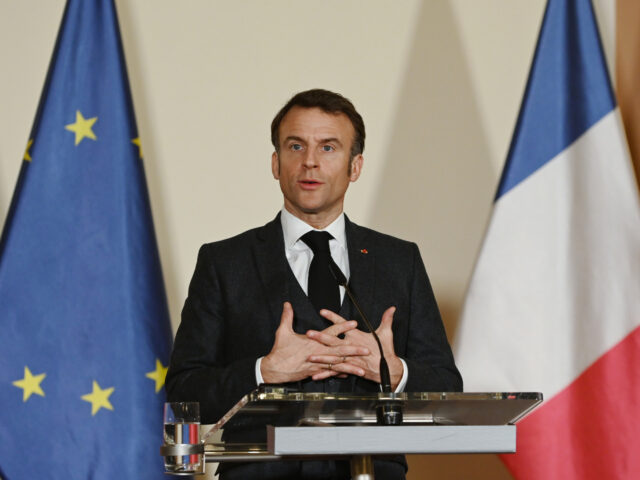French President Emmanuel Macron demanded that Europe not be “cowardly” in the face of the Russian threat and claimed that his controversial suggestion of sending troops into Ukraine was merely about “opening debate”.
Speaking from Prague on Tuesday, where he met with Czech President and former NATO Military Committee chairman Petr Pavel, Macron attempted to defend his bombastic rhetoric last month in which he said that he would not “rule out” sending French troops into the battlefield in Ukraine.
The suggestion was widely condemned on both sides of the conflict, with Moscow warning of nuclear war if NATO troops actively entered the fight and Western allies such as the United States and Germany quickly dismissing the notion of sending troops to fight against the Russian military. Even Ukrainian President Zelensky expressed hesitancy towards the notion, saying that Kyiv has never requested Western militaries to fight in the war.
“I said that nothing was ruled out. Every word counts. Right now, Europeans must ask themselves whether their current strategy meets the declared goals. In my view, our democracies need a boost, they need a strategic awakening, because Russia, with its impunity, threatens the security of the European continent and its values,” Macron said in an interview with Czech newspaper Právo.
“We are opening a debate and thinking about everything that can be done to support Ukraine,” Macron said, adding: “I have always made it clear about our framework: we are not at war against the Russian people and we refuse to enter into the logic of escalation. However, Ukrainians are fighting for our values, our security and our approach must meet this challenge.”
Although the Czechs officially disavowed the idea of sending active personnel into Ukraine, Pavel tried to give Macron some cover by saying that Prague was “favourable to the search for new options, including a debate on a potential presence in Ukraine,” but said that there must be a “red line” against deploying “combat troops” into the country.
Despite Macron’s apparent moderation, admitting that Europe does “not want an escalation”, he went on to say that the West must “live up to history and the courage it requires” and therefore said that it is important for Europe to “not be cowardly” in the face of the Russian threat, Le Figaro reports.
Rather than coalition building like he had hoped, the comments from the French president once again riled his allies in Berlin, with German Defence Minister Boris Pistorious retorting: “We do not need discussions about having more or less courage,” adding: “It doesn’t really help solve the problems”.
Meanwhile, during his trip to Prague, Macron announced that France will “join the Czech initiative” of buying artillery shells from outside of the European Union to supply to Ukraine after President Zelensky revealed that the EU had only delivered 30 per cent of its pledged shells to Kyiv, fundamentally undermining the argument that the shortages on the battlefield are a result of lack of further funding from the United States.
Last year, Brussels promised to deliver at least a million artillery shells by this month, yet, after the new year, the bloc admitted that it would only be able to deliver half that by the end of March. It is unclear if this target will even be met, however, with only around 355,000 from EU stockpiles being sent so far.
In order to make up for the shortfall, the Czechs proposed purchasing shells from outside of Europe and then donating them to Ukraine.
On Tuesday, Macron said France would become the Netherlands and Belgium in supporting the plan, saying: “We have accelerated and increased our production in Europeans, and delivered available stocks. We must go beyond what we can produce and look to third countries for the remaining capacities to cope in the short term.”
Czech President Petr Pavel said that Prague has already identified 800,000 shells which it could purchase on the global market, but said that the funding needs to be put in place, with the cost of the scheme set to run at least $1.5 billion. While he publicly committed to the project, Macron did not reveal how much France would be willing to pay to prop up the plan.

COMMENTS
Please let us know if you're having issues with commenting.